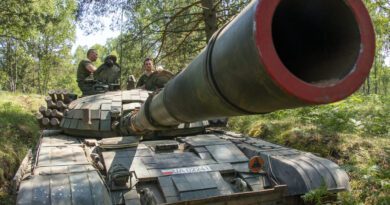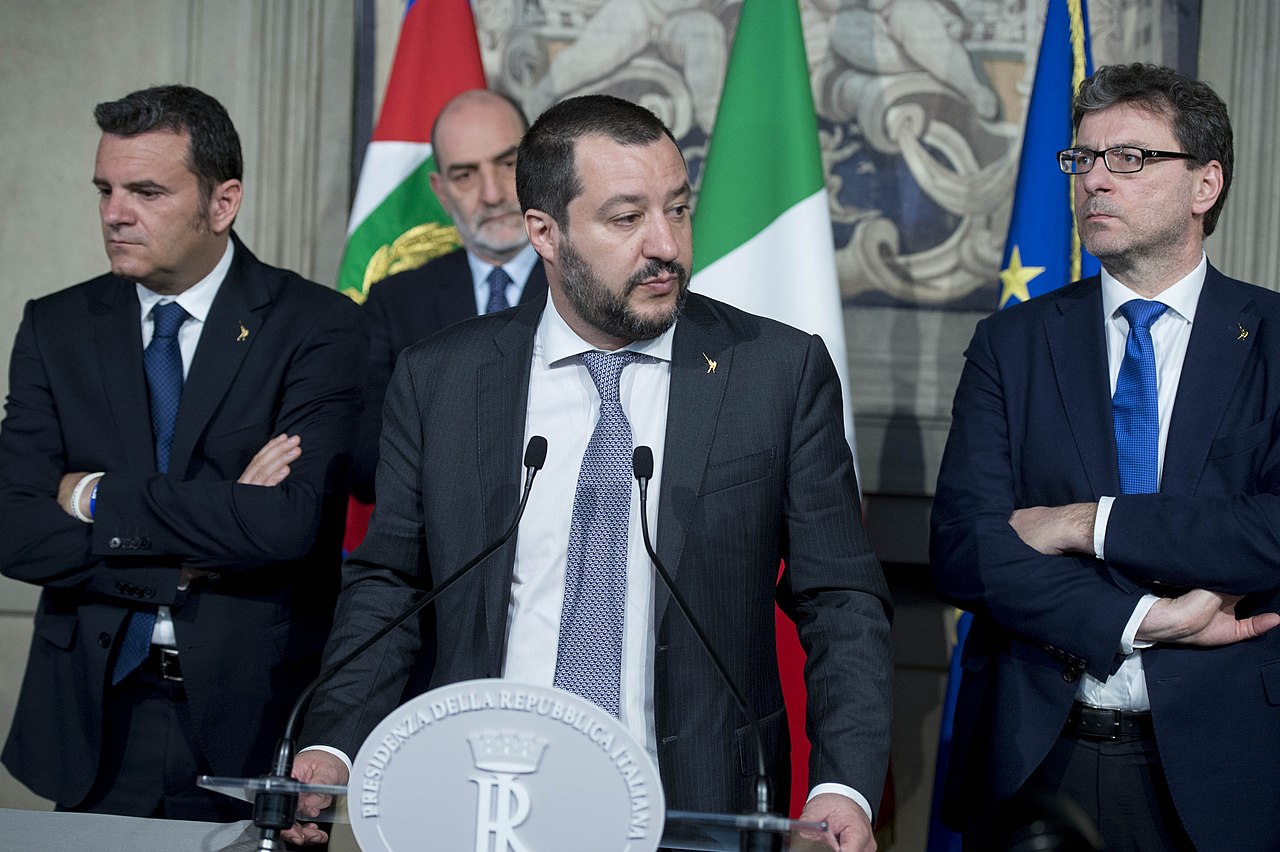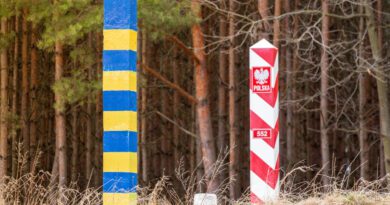Who will fill in Russia’s spiritual void?
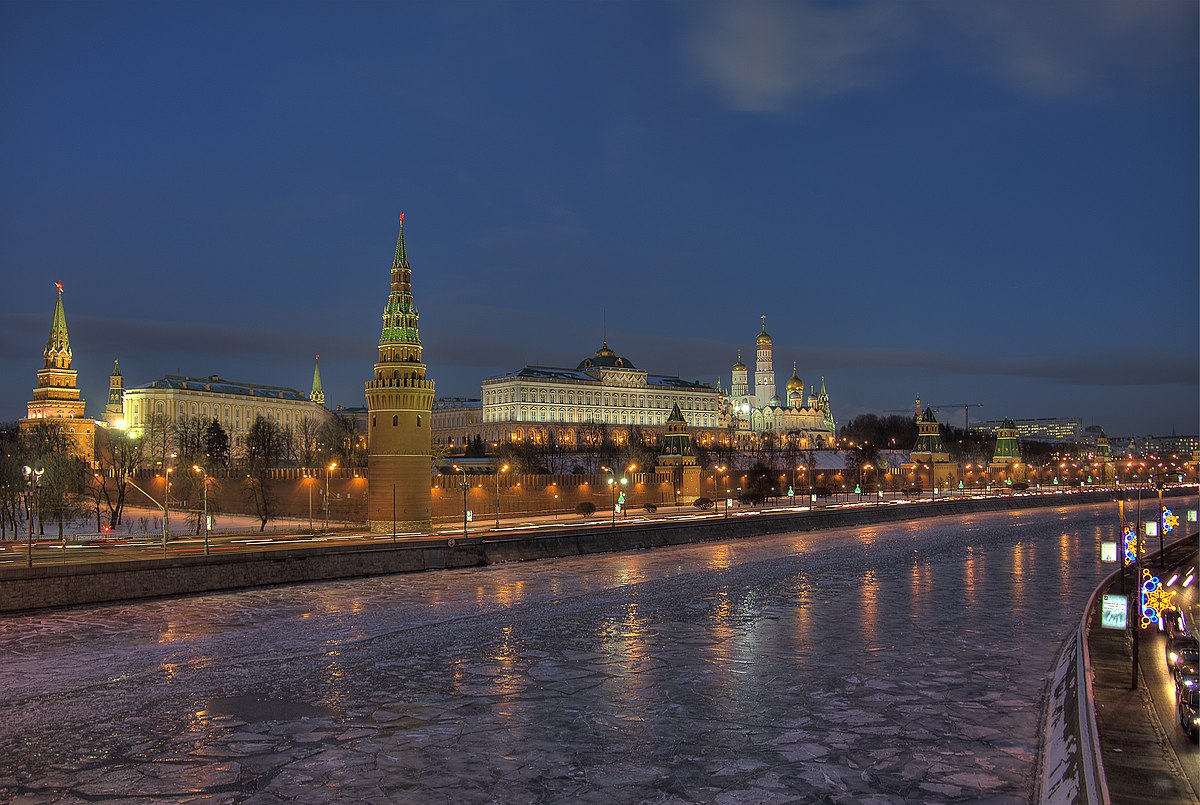
“Putin is a representative of the “mainstream” and in a way embodies the age-old approach to the people of the Russian government and the slogan >>Either Russia will be a superpower or it will not exist at all<<” – says prof. Michal Lubina, political scientist, traveler, international relations researcher, specialist in the issues of Russian-Chinese relations
Tomasz D. Kolanek: The vast majority of people in the West, including Poland, are convinced that Putin is Russia and Russia is Putin. How do you – someone who has been researching Russia for 20 years and who was a tour guide in Russia for many years – see this?
Prof. Michal Lubina: Putin is certainly not all Russia. He himself represents the traditional paradigm of power in Russia. Putin is the best example of what the Russian political mainstream has almost always looked and acted like, or however it sounds: the traditional approach to Russian governance and government-citizen relations. Putin also constitutes a traditional approach to the idea of a superpower in Russia – the world’s largest country, which has existed for centuries. However, I emphasize again: what Putin represents is not all of Russia. There are other people out there and other visions of Russia, the world, politics – some are more oppositional, others more nationalistic, others extremely chauvinistic. However, bracketing all these considerations, Putin is a representative of the “mainstream” and in a way embodies the age-old approach to the people of the Russian government and the slogan “Either Russia will be a superpower or it will not exist at all.”
Is Putin more in line with the “tradition” of the communist USSR, or perhaps with the tradition of Russia of the tsars?
Putin is eclectic, or to put it in more theoretically correct language, he is hybrid, that is: he combines different kinds of elements.
The basic problem of the Russian Federation after 1991 is the lack of a (new) Russian idea, that is, some single general idea of the state. In the case of Czarist Russia, such an idea was all sorts of orthodox variants like the idea of a “Third Rome” or “Russia as the defender of Slavism,” etc. In the case of the USSR, on the other hand, we were dealing with internationalist messianism, a reworked Marxism, the main idea of which was that the whole world should be communized and catalyzed. The Russian Federation, despite its attempts and efforts, does not have such a single idea, with the same intensity as the Russia of the czars or the USSR.
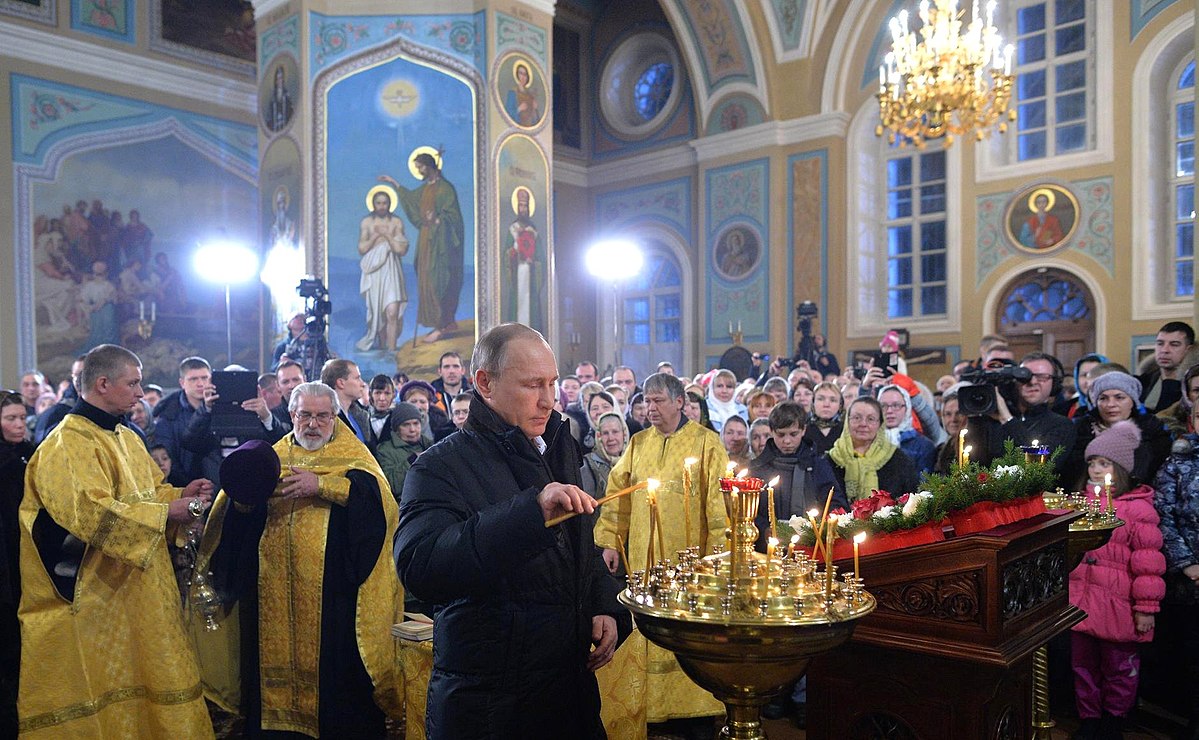
If you look at what the Russian Federation’s main ideas about itself have been over the past 30 years, you can see that Moscow is looking for some main political element. Sometimes it is defense of Russians abroad, other times it is anti-Americanism. However, this is not the same ideological level as 100, 200, 300 years ago. It’s all a bit intellectually second-rate, weaker, and more limited than the concepts of decades or centuries ago.
The Russian Federation is not at the same level of ambition and power as its previous incarnations, which had global ambitions. Here we are dealing with local ambitions limited to the territory of the former USSR and the remaining areas of the “neighboring abroad.”
At the same time, however, because the Russian Federation has been searching for its place in the world all the time after 1991, it has been trying to choose the best of the tsarist and communist traditions. The best example here is Red Square in Moscow. There we have Lenin’s mausoleum on one side, the Cathedral of Vasily the Blessed on the other, the walls of the Kremlin on the third, and red stars on the surrounding buildings on the fourth. Evidently, then, this is an attempt to combine two traditions. An attempt that doesn’t mesh very well. Among the people, such a Red Square is precisely Vladimir Putin, who is also trying to combine Tsarist and Soviet elements.
For all intents and purposes, the only thing that has been consistent for centuries in Russia is imperialism, quest to be a superpower, the belief that “either Russia will be a superpower or there will be no Russia at all.”
As we look at Putin and his power, we see several periods. Initially, we have an obvious alignment with the West, which is evident after September 11th, 2001. After that, however, Putin gradually moved away from this. In my opinion, this was a deliberate act, because in this way Putin was searching for Russian identity and Russia’s place in the modern world. This is all connected with the search for the Russian soul. Will it ever succeed? I don’t know, but what I do know is that Russia will never give up its ambitions to be a superpower.
Is an element of the Russian soul a kind of messianism? You brought up “The Third Rome” or “Defense of Slavism.” In my opinion, Russia is currently presenting itself as “The last defender of true Christianity, which will convert the world” …
Please note what Russian propaganda looks like when it comes to the war in Ukraine. They talk about denazification, about fighting Satanists, etc. Often this is simply grotesque, but that does not change the fact that it indirectly reveals the spiritual need of many Russians.
Please remember that spiritually, Russians are a nation very much scarred by the 20th century. Before the October Revolution, Russian messianism was coherent in an intellectual sense. Now, after the communist steamroller that rode on the Russians for almost the entire 20th century, we are faced with one big chaos. This shows that the Communists did not kill the spiritual elements and higher, metaphysical needs in Russians. I have the impression that Russians are still looking for justification for their messianism and, consequently, their imperialism. It is certainly not the case that everything is done on a simplistic level, in the sense of “we are attacking Ukraine because we want to be an empire.” In my opinion, they are looking for something more: “we want to be an empire because we have a mission.”
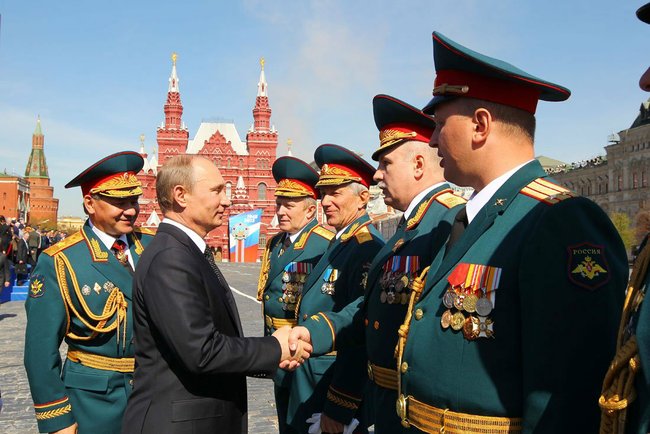
Let me just remind you that Patriarch Kirill said that what has metaphysical significance in Ukraine is the fight against the antichrist. This probably best shows that Russians have a need to justify what they do regardless of whether it is good or bad from a metaphysical perspective. There would not be enough room here if I wanted to list all the justifications for the war in Ukraine. Why are they presented to the Russians? To convince them that it is not just about simply invading and conquering Ukraine, but about “something more.” Does this succeed? In my opinion, not always and not everywhere. All because of the spiritual chaos after 1991, from which Russia has not recovered to this day.
Do you mean to say that Russians by themselves do not believe in either Russian messianism or Russian siege mentality, it just serves them to justify everything?
No. In my opinion, in the case of Russia we have a very interesting mix of rational and metaphysical elements. Thinking in terms of buffers or that the threat should be distanced from the core of the country is strongly realistic, and in this respect this is where some understanding of Russia’s actions in certain circles of so-called political realists in the West comes from. The rational elements are in a sense universal. If someone tells us that NATO is cornering Russia, one person may disagree with this and argue why it is not true. But on the other hand, we can’t forbid anyone from thinking that it is, because in some sense it is rational.
The whole beauty, or perhaps the whole tragedy of Russia, is that rational elements, that is, those that are to some extent common sense, are combined with spiritual and ideological elements. All this is mixed together, so that we don’t fully know what led to a particular decision. If we look at Ukraine, on the one hand there is rational thinking in terms like: Kiev is pro-Western; from Kiev it is close to Moscow; CONCLUSION: it is a threat to Russia. On the other hand, we have the cultural element, i.e., the desire to seize the heritage of Kievan Rus, and from this perspective there can be no independent Ukraine, because the whole paradigm with the transition from Kiev to Moscow in the time of Rus falls apart. On top of that, there is an emotional element under the title: “Ukrainians are Lesser Belarusians” or “Younger brothers.” For all intents and purposes, all these elements are interconnected and mixed up at both the individual and state level, and as a result, it is very difficult to unravel them. It’s not that one element decides. There is an apt statement: “If someone studies any social science and believes that a particular phenomenon is determined by one cause, then he ought to change his profession.” It is never the case that there is one cause, and in the case of Russia this is particularly interesting. Spiritual elements dominate in one area, and in another they are virtually absent from the public space. Sometimes it is propaganda and sometimes it is true belief. Sometimes a justification, and sometimes an attempt to seek the meaning of action.
Whatever the spiritual elements are, however, in my opinion they show one truth about the “national character” (if we can use that category): it takes more than force. Force is, of course, necessary, to be clear. Russians are a force-loving nation, but there must be an idea behind that force. Since Russia currently has a problem with this idea, it also has a problem with its justification, and hence, as I have already pointed out, there are dozens of explanations for the aggression against Ukraine, sometimes in contradiction of each other.
I’ll be honest: I don’t know if Russians believed Kirill that there is a religious war going on in Ukraine, but I get the impression that many of them genuinely believe that Orthodoxy is the last bastion of true Christianity, which is not “corrupted” by at least LGBT ideology the way Christianity is in the West. And here is my question: is there a kind of religious revival taking place in Russia, as some suggest, or is it all theater, a game, a mask? Kirill has inadequately justified to Russians the reasons for the use of force in Ukraine, so shall we look to Kadyrov’s Muslims for answers?
As for Patriarch Kirill, I associate the man with a character from the movie “Leviathan.” Toward the end of the film, we see a scene in which the hierarch delivers a sermon about how the Lord Jesus sees everything and will hold everyone accountable for everything, and the very person speaking these words is degenerate to the marrow of his bones. Cyril, who was a KGB agent; a man who should be addressed as “comrade” and not “batyushko1” for me is not, to say the least, a convincing man. However, I do not exclude the possibility that he may have some spiritual elements in him, but from the outside everyone can see how bad it looks. Let me say something trivial now: in Orthodoxy, the Orthodox Church has always aligned itself well with the ruling power. This is the Byzantine tradition, which is completely different from Western Europe. This is a tradition that has existed since the 4th century AD, and according to it, the Orthodox Church must be glued to power.
And does the ruling power have to be glued to the Orthodox Church?
Power should theoretically be Christian. However, one must keep in mind the element of asymmetry of power: since the Byzantine era, it was the authority that was the stronger element than the Orthodox Church. They are certainly to a greater or lesser degree connected vessels – one influences the other, but nevertheless the authority is always stronger.
It should also be remembered that the Orthodox Church has been increasingly subjugated by power in Russia over the centuries. I remember what a shock it was to me when I learned in my Russian studies that Peter I had introduced a rule: if someone in confession says that he has an idea of conspiracy or speaking against the authorities, the confessor is obliged to report it to the state authorities. This was absolutely shocking to me. The secrecy of confession is the foundation of Christianity, many Polish priests gave their lives during the war defending the secrecy of confession, and here we are faced with: the authorities demanded it, so the batyushko ratted.
I repeat: in this model, power is always stronger, and the Orthodox Church has this in the back of its mind. But in addition to this there is another element that I think is very rational: we are dealing with a kind of specific spiritual revival in Russia after 1991.The problem is that this revival is taking place in a great spiritual desert, because communism plowed through the souls of most Russians and left a void there. Orthodoxy is trying to sow on this emptiness, but Protestants or various sects, from peri-Christian to various exotic ones, such as Indian, are not idle either. Orthodoxy, however, is still the strongest, but on the other hand, for the time being, this revival is not some extraordinary one, so the Orthodox Church needs the care of the state to regain what it lost under communism.
As for traditional values: Russia is still among the top countries when it comes to the number of divorces (according to Rostat, the divorce rate is 4.1; while in no other European country has it reached above 3.1; in Poland it is 1.7; Eurostat data), as if divorce is inscribed in the identity there; Russia is the European leader when it comes to the number of abortions (according to WHO, in 2019. Russia had 351 abortions per 1,000 births; by comparison, Sweden had 306 and Germany 130), as if abortion is part of everyday culture there and even Putin’s ban on advertising abortion can’t change that, etc.
The only thing that makes Russia stand out in terms of traditional values is its opposition to LGBT and gender ideology. I, however, see this as part of opposition to the West and defense of one’s own identity. This doesn’t necessarily stem from orthodoxy, but from the already-induced besieged fortress syndrome – Russia doesn’t want to be like the West; Russia doesn’t want the West to impose more elements on it, so it clings to what it has and rejects the belief in gender plurality. For, as absurd as it sounds to Ukrainians, for example: Russia does not consider itself aggressive, but defensive, a Katechon, a shield against evil. And since the best defense is offense, we have a war.
1 a term used to refer to a Russian Orthodox priest
This interview was published in February 2023 in “Do Rzeczy” magazine.

